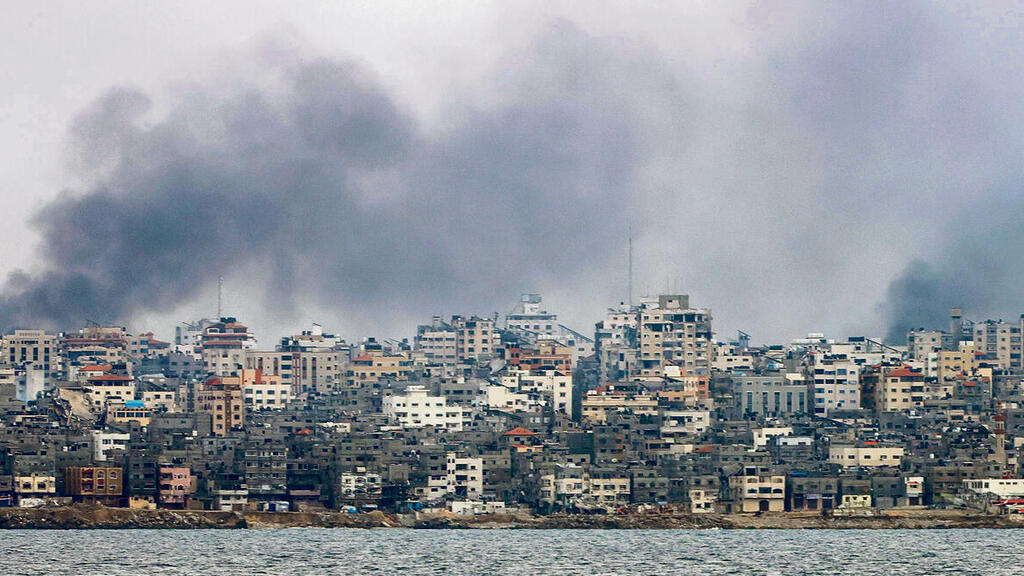The ongoing discussion of casualties and injuries sustained by IDF forces during the Gaza war is prompting a reevaluation of the scope and power of the weapons being used and the strategic considerations in challenging terrains. The intention is to optimize ground operations in densely populated and perilous areas, emphasizing the need for adaptability.
Read more:
However, during times of conflict, discussing these issues in the media becomes a delicate matter. Revealing specific details may inadvertently provide the enemy with unnecessary information. Striking a balance between transparency and strategic secrecy is crucial.
The IDF asserts its unwavering commitment to the safety of its soldiers. Prime Minister Benjamin Netanyahu dismisses any notion of external pressure, particularly from the United States, a significant supplier of weapons. Nevertheless, it is imperative to recognize the IDF manages an "arms economy" in order to ensure readiness for potential escalations on the northern front. This acknowledgment underscores the intricate dynamics at play.
Within the halls of the Defense Ministry a stark reality emerges – the ongoing war has incurred a jaw-dropping expense, a whopping $18 billion. This isn't just a hefty price tag; it eclipses the entire annual defense budget, sans the crutch of American aid, which itself stands at $18 billion. The financial toll is nothing short of monumental.
The urgency is palpable, the scale is immense, and the bills are mounting. This is not just a war of arms, it's a fiscal battlefield where the stakes are of paramount national importance.
And for those still peddling the notion that the U.S. is inconsequential, let's lay bare the facts. Over 230 transport planes and 20 ships have descended upon Israel, laden with a crucial lifeline. Think ammunition for the Air Force, artillery missiles, armored vehicles, and essential combat gear, including life-saving ceramic vests for our soldiers. It's not just aid; it's a lifeline.
In the intricate dance of wartime logistics, the Defense Ministry has pulled out all the stops: multi-year contracts, shelved products, and items languishing in American emergency warehouses, all brought forward with unprecedented speed. The urgency is palpable, the scale is immense, and the bills are mounting. This is not just a war of arms, it's a fiscal battlefield where the stakes are of paramount national importance.
According to a high-ranking official in the defense establishment, prior to the war the IDF extensively utilized its existing ammunition reserves and successfully replenished them, ensuring readiness for a potential all-out conflict with Hezbollah. The official emphasizes that the ammunition dedicated to offensive operations and air defense in the region was strictly preserved.
Destruction in Gaza is a pricey business
Regarding the significant deployment of aircraft and artillery weapons during the initial phase of the conflict, the source explains that this can be attributed to an underestimation of the enemy's resilience. The IDF had not anticipated the level of resistance encountered, which necessitated a more intensive use of these assets.
Aerial bombardments currently on hold
"In the comfort of your plush surroundings, it's easy to criticize the purported excess in ammunition use, dismissing it as a lack of professionalism. Yet, the reality on the ground, a threat more formidable than our pre-war estimates, doesn't fit this armchair analysis," said a source closely connected to the matter.
An IDF spokesperson chimed in, emphasizing that aerial support is diligently provided to every field force that requires it. However, the assertion is that, currently, air strikes on buildings are curtailed, not due to a lack of need, but rather a calculated decision not to waste ammunition for mere structural targets. The caveat remains: If buildings pose a credible threat or are flagged by intelligence, the military's response is swift and strategic.
The ammunition shortage isn't confined to Israel; it's a global predicament exacerbated by the Russian invasion of Ukraine. This has ignited a frenzied race for ammunition worldwide, depleting fundamental combat resources. Israel, drawing a critical lesson from this, is reevaluating its dependence on local industry.
In a consequential move, several Israeli companies have been compelled to cancel contracts with foreign nations to prioritize supplying ammunition to the IDF. This, however, comes at the cost of harming these companies' standing with their international customers, a blow the government is seeking to mitigate.
A substantial portion of the IDF's budget found its way into the reserve system, surpassing 250,000 active servicemen and women at its zenith. This commitment extends across all operational sectors, intertwining with crucial systems like the Air Force, Home Front Command, and the logistical-administrative framework of the army. The comprehensive war effort extends beyond firepower to encompass the vital allocation of resources such as food and fuel.
As the release of more reservists unfolds and in the absence of additional fronts opening up, the projected trajectory is a reduction in the daily cost of the war from the current $330 million. However, it's imperative to underscore that, even with this decline, the financial toll of the war remains exorbitant and far from manageable by any means.
The decision to cancel the reduction of active duty and the reserve law, which shortened the days of employment, has been made. Senior officials have emphasized that nearly every reservist who was called up will be mobilized again in 2024 for defensive missions in the Western Negev and the northern border. The objective is to restore a sense of security to the residents who will eventually return to their homes.
It's essential to reiterate that the reserve system is not an engine that runs on patriotic fervor and a commitment to duty. The current fallout is stark: families are unraveling, and businesses are crumbling as these exceptional individuals forsake everything to defend their homes. The endurance of this sacrifice is precarious without urgent, all-encompassing, and sustained efforts to recognize and assist reservists and their families.






